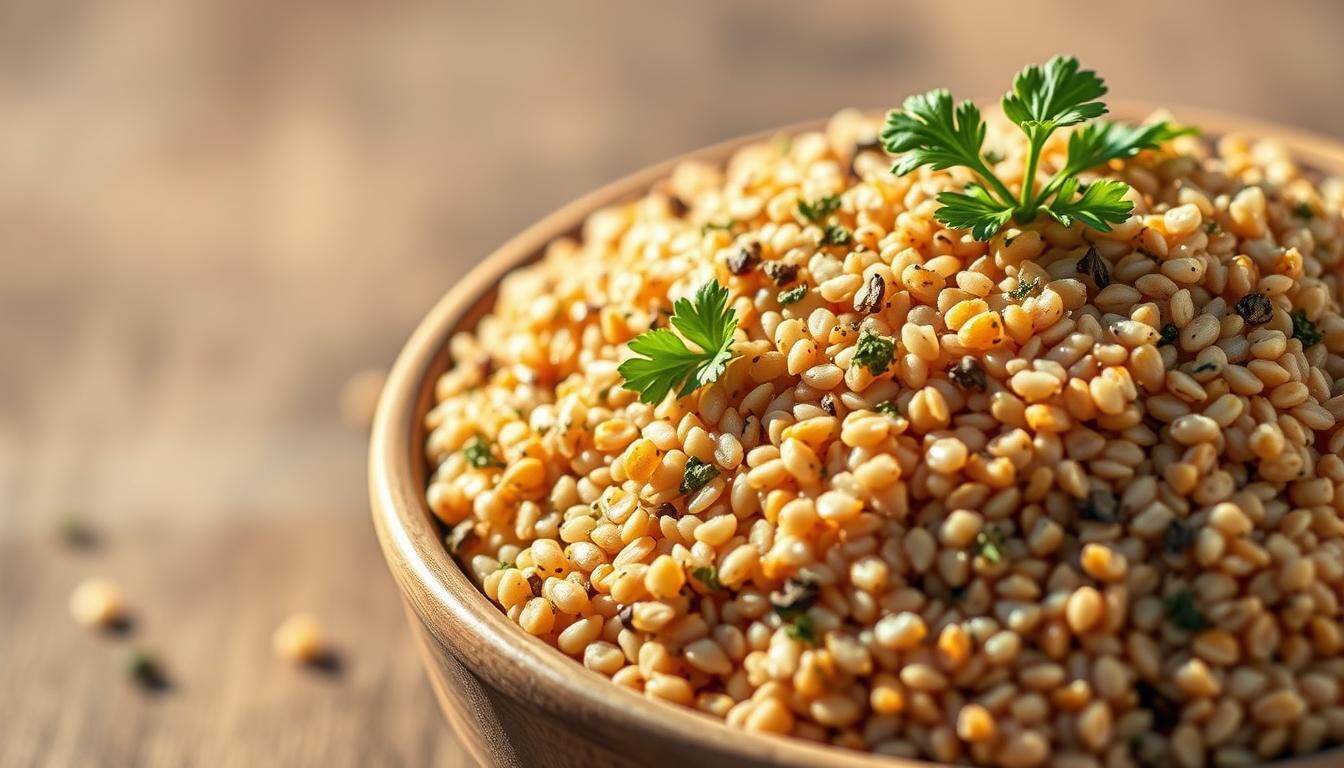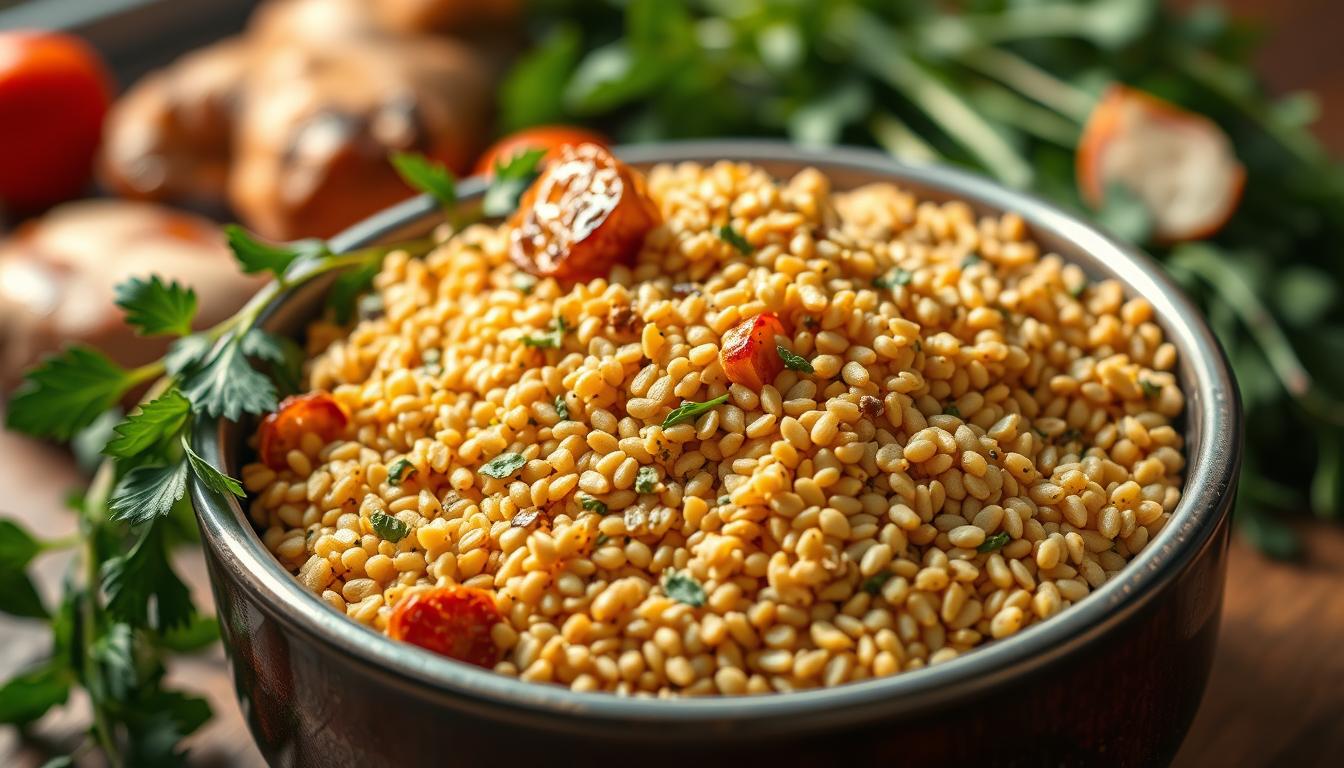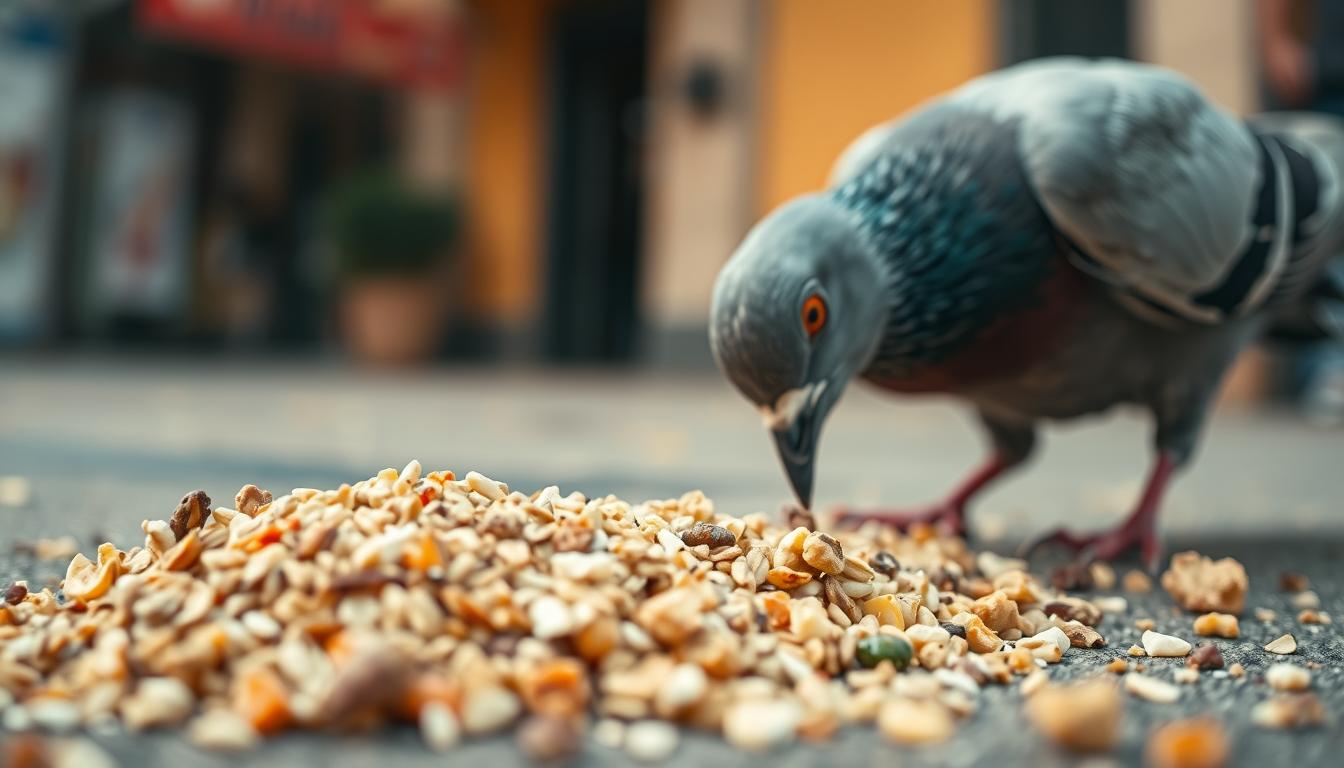Can dog eat popcorn? If you’ve ever settled in for a movie night and caught your furry friend eyeing your snack, you’re not alone. Many pet owners wonder whether it’s safe to share popcorn with their dogs. While plain, air-popped popcorn is generally safe in moderation, the buttery, salty, and flavored varieties we love can pose health risks.
Popcorn itself contains small amounts of fiber and minerals that can benefit dogs, but added ingredients like butter, salt, and cheese can lead to digestive issues and unnecessary weight gain. Treats, including popcorn, should make up no more than 10% of your dog’s daily calorie intake to maintain a balanced diet.
Before offering popcorn to your pup, always consider their dietary needs and consult your vet if you’re unsure. In this article, we’ll dive into the benefits and potential risks of feeding popcorn to your dog, helping you make the best choice for their health and happiness.
Table of Contents
Understanding the Nutritional Facts of Plain Popcorn
Plain, air-popped popcorn is a whole grain snack that offers several nutritional benefits. It contains essential minerals like magnesium, manganese, and phosphorous, which support bone health and energy production. Additionally, it provides fiber and trace vitamins, making it a wholesome option for your furry friend.
Nutrient Benefits in Air-Popped Popcorn
Air-popped popcorn is rich in nutrients. It contains magnesium, which supports muscle function, and manganese, which aids in metabolism. The fiber in popcorn can help maintain a healthy digestive system. However, it’s important to remember that while these nutrients are beneficial, they shouldn’t replace a balanced diet.
Risks of Butter, Salt, and Other Toppings
While plain popcorn is safe, adding toppings like butter or salt can be harmful. Butter adds fat, which can lead to weight gain and pancreatitis. Salt, even in small amounts, can cause stomach issues. Other toppings like cheese or caramel can also pose risks, making it crucial to keep popcorn plain and simple.
Stick to air-popped popcorn without any added toppings for a safe and healthy treat. Always consult your vet before introducing new foods to ensure they meet your dog’s dietary needs.
Can Dog Eat Popcorn? Safe Techniques and Tips
When considering whether your furry friend can enjoy popcorn, it’s important to approach with caution. While plain, air-popped popcorn can be a safe treat, there are specific guidelines to follow to ensure it remains harmless and enjoyable for your pet.
How to Serve Plain, Air-Popped Popcorn
Serving plain, air-popped popcorn to your pet requires careful preparation. First, ensure all unpopped kernels are removed to prevent choking hazards. These kernels can be dangerous if inhaled. Additionally, always choose air-popped over microwave popcorn, as the latter often contains harmful additives. Veterinarians recommend only offering this treat in small amounts to avoid any potential issues.
Controlling Portions for a Healthy Diet
Portion control is crucial when sharing popcorn with your pet. Treats should not exceed 10% of their daily calorie intake. Overfeeding can lead to obesity and other health concerns. Always consult with a veterinarian to determine the right portion size for your pet. While popcorn can be a fun treat during a movie, it’s important to maintain a balanced diet to prevent digestive upset and other issues.

Remember, safety and moderation are key to ensuring your pet enjoys this treat without any adverse effects. Always prioritize your pet’s health and well-being when introducing new foods.
Potential Health Risks and Allergen Information
While popcorn can be a fun treat, it’s important to be aware of the potential health risks for your pet. Improper preparation or overfeeding can lead to serious issues, making it crucial to approach this snack with caution.
Digestive Upset and Obesity Concerns
Eating improperly prepared popcorn can cause digestive upset in pets. This is often due to added fats or salts that can lead to stomach issues. Overfeeding, especially with high-fat toppings, can also contribute to obesity. Obesity in pets is linked to various health problems, including diabetes and joint issues. It’s essential to monitor portion sizes and avoid unhealthy additives.
Allergy Alerts: Corn as a Common Allergen
Corn is a common allergen for many pets. If your pet has a corn allergy, they might experience symptoms like itchy skin or digestive problems. Always monitor your pet’s reaction after introducing new foods and consult your vet if you notice any adverse effects.
Choking Hazards and Dental Issues
Unpopped or partially popped kernels can get stuck in your pet’s teeth, leading to dental problems. These hard pieces can also pose a choking hazard, especially for smaller pets. To keep your pet safe, make sure to remove all hard-to-chew pieces before offering popcorn as a snack.

Remember, your pet’s health should always come first. If you notice any signs of distress after your pet eats popcorn, seek veterinary advice immediately. Always choose plain, air-popped popcorn and avoid any additives to ensure a safe and healthy treat for your furry friend.
Conclusion
Sharing snacks with your pet can be a delightful experience, but it’s crucial to prioritize their well-being. When it comes to popcorn, plain, air-popped varieties are the safest choice for your good dog. However, it’s essential to serve them in the right amount to avoid any potential harm.
Remember, moderation is key. Overfeeding can lead to stomach issues and other health concerns. Additives like butter or salt can quickly turn popcorn into a popcorn bad dog treat, so always keep it simple. Ensuring your pet’s diet remains balanced is vital for their overall health.
Before sharing, remove any unpopped kernels to prevent them from getting stuck in your pet’s teeth or causing choking. If you notice any signs of distress, seek veterinary advice immediately. A safe dog treat routine includes monitoring your pet’s reaction and avoiding harmful ingredients.
Understanding the risks, from obesity to allergy alerts, empowers you to make better choices. For a popcorn safe approach, stick to air-popped varieties and avoid fatty toppings. Always consult your vet for personalized advice to ensure your pet stays healthy and happy.
By following these tips, you can enjoy movie nights with your pet while keeping them safe. Celebrate a popcorn safe approach and maintain a wholesome treat routine for your furry friend!
FAQ
Is popcorn safe for dogs to eat?
Plain, air-popped popcorn is generally safe for dogs in small amounts. However, it should be free of butter, salt, and other toppings, as these can be harmful to your pet.
What are the risks of feeding popcorn to dogs?
While plain popcorn is not toxic, it can cause digestive upset if overeaten. Additionally, kernels can get stuck in your dog’s teeth or throat, leading to discomfort or choking hazards.
Can popcorn be part of a healthy diet for dogs?
Popcorn is low in fat and calories when air-popped, but it lacks essential nutrients for dogs. It should only be given as an occasional treat and not as a replacement for balanced meals.
How much popcorn can I safely give my dog?
Moderation is key. A few pieces of plain, air-popped popcorn are unlikely to harm your dog, but overfeeding can lead to obesity or an upset stomach. Always consult your veterinarian for portion guidance.
What toppings should I avoid putting on popcorn for my dog?
Avoid butter, salt, cheese, and other seasonings, as they can be unhealthy for your dog. Plain popcorn is the safest option for your pet.
Can popcorn cause allergies in dogs?
While rare, some dogs may be allergic to corn. If your dog shows signs of an allergic reaction, such as itching or swelling, contact your veterinarian immediately.
How can I prevent popcorn kernels from getting stuck in my dog’s teeth?
Supervise your dog while feeding popcorn and only offer fully popped kernels. Avoid giving large pieces or unpopped kernels, as they can easily get lodged in their teeth or throat.
What are the signs of a stomach upset in dogs after eating popcorn?
Watch for symptoms like vomiting, diarrhea, or lethargy. If your dog experiences these, stop feeding popcorn and consult your veterinarian for advice.
Is it okay to give my dog popcorn during movie night?
Occasional, small portions of plain popcorn are fine, but make sure it’s not a regular habit. Always prioritize your dog’s balanced diet and health needs.
Can popcorn contribute to obesity in dogs?
Yes, if given in large amounts or frequently, popcorn can lead to weight gain and obesity. Keep portions small and infrequent to maintain your dog’s health.
Should I consult my veterinarian before feeding popcorn to my dog?
Yes, especially if your dog has specific health conditions or dietary restrictions. Your veterinarian can provide personalized advice based on your dog’s needs.
Source Links
- Human Foods Dogs Can And Can’t Eat – http://www.supergoldens.com/?p=753
- Acid Reflux in Dogs: Causes, Symptoms, and Treatment – https://toegrips.com/acid-reflux-dogs/
- Can Dogs Eat Popcorn? What You Need to Know for Movie Night – https://www.thesprucepets.com/can-dogs-eat-popcorn-8642714
- Can Dogs Eat Popcorn? Vet-Reviewed Health & Safety Guide – Dogster – https://www.dogster.com/dog-nutrition/can-dogs-eat-popcorn
- Can Dogs Eat Popcorn? Here’s What Vets Say – https://www.rd.com/article/dogs-eat-popcorn/
- Can Dogs Eat Popcorn? What You Need to Know for Movie Night – https://www.yahoo.com/lifestyle/dogs-eat-popcorn-know-movie-203436987.html
- Can Dogs Eat Blueberries? – https://www.thesprucepets.com/can-dogs-eat-blueberries-8637352
- Can Dogs Eat Popcorn? – https://www.pumpkin.care/blog/can-dogs-eat-popcorn/
- Can Dogs Eat Popcorn? What You Need to Know – https://noblevetclinic.com/blog/can-dogs-eat-popcorn-what-you-need-to-know
- Can Dogs Eat Popcorn? | Spot Pet Insurance – https://spotpet.com/blog/dog-tips/can-dogs-eat-popcorn
- What Happens When Dogs Eat Popcorn? Quick Facts! – https://dogsandcatsy.com/can-dogs-eat-popcorn/
- What Human Foods Can Dogs Eat? Vet-Reviewed Health & Nutrition Guide – Dogster – https://www.dogster.com/dog-health-care/what-human-foods-can-dogs-eat




